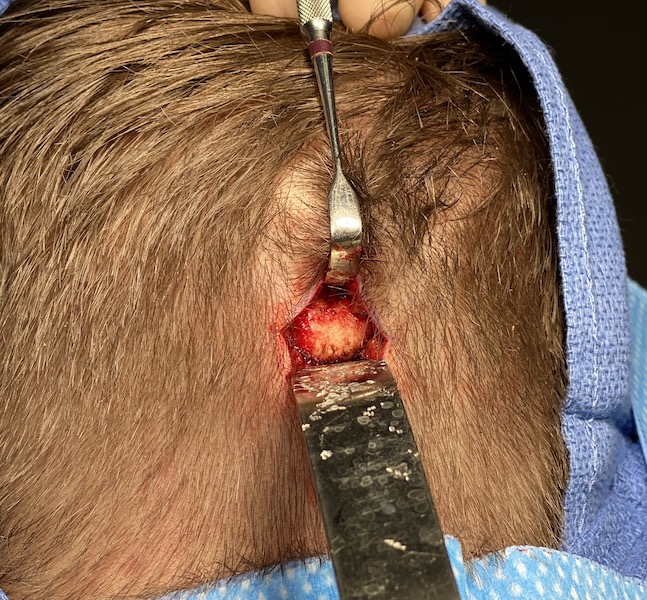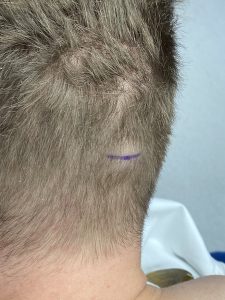Background: The occipital knob is the protrusion of bone that occurs in the midline at the bottom of the back of the skull. Everyone has an occipital knob but it usually becomes much bigger and noticeable in some men. This may be due to the short hair that men have that makes it more noticeable but I also think it is a gender specific feature that is prone to over development….much like the brow bones of the lower forehead.
While many men who present for occipital knob skull reduction have very short hair or a shaved head, not all do. Some men wear their hair deliberately longer to hide a prominent knob. Their goals to reduce the knob so that they can feel more comfortable wearing a much shorter hairstyle.
When doing occipital knob reduction, or any form of skull reshaping surgery for that matter, it is not necessary to remove/shave hair. While it can make certain aspects of the surgery more challenging, specifically incisional opening and closure, hair around the surgical field has not been shown to increase the risk of infection in extra cranial surgery. But because of the hair certain precautions need to be taken to protect it.
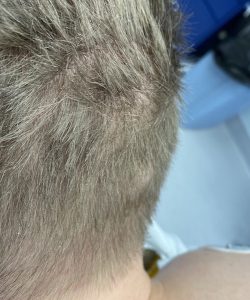
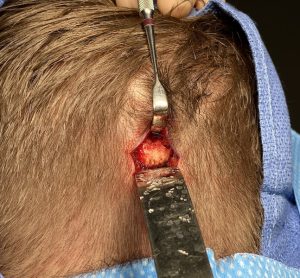
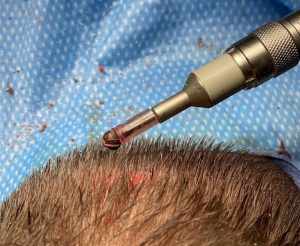
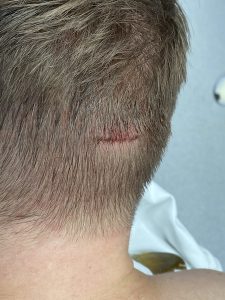
While removing hair for all forms of skull reshaping surgery has not been shown to be necessary for infection prevention, the tradeoff is that one has to become very vigilant about protecting the surrounding hair so that it does not become injured. The most dangerous issue for hair in skull reshaping surgery is a high speed handpiece where it can grab and avulse hair in an instant by the rotating shaft. (not the actual working end of the burr) Guarding the shaft of the burr is the way to protect against that potential adverse intraoperative event.
Case Highlights:
1) Occipital knob skull deformities can bother men with hair as it is visible the shorter the haircut is.
2) Shaving hair is not necessary when performing occipital knob reduction.
3) When using a high speed handpiece and burr through incisions with surrounding hair it is necessary to place a guard around the rotating shaft.
Dr. Barry Eppley
Indianapolis, Indiana

